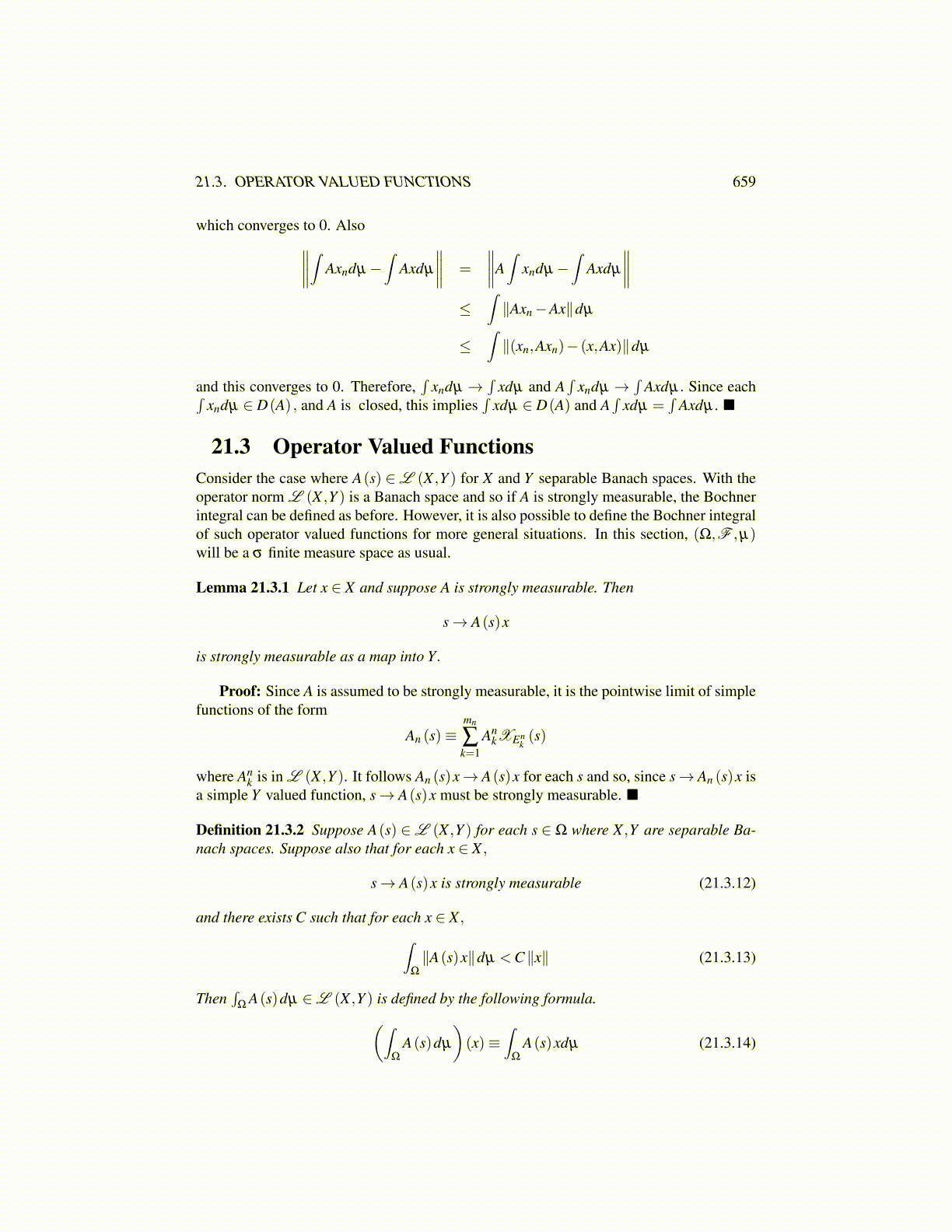
21.3. OPERATOR VALUED FUNCTIONS 659
which converges to 0. Also∥∥∥∥∫ Axndµ−∫
Axdµ
∥∥∥∥ =
∥∥∥∥A∫
xndµ−∫
Axdµ
∥∥∥∥≤
∫∥Axn−Ax∥dµ
≤∫∥(xn,Axn)− (x,Ax)∥dµ
and this converges to 0. Therefore,∫
xndµ →∫
xdµ and A∫
xndµ →∫
Axdµ. Since each∫xndµ ∈ D(A) , and A is closed, this implies
∫xdµ ∈ D(A) and A
∫xdµ =
∫Axdµ .
21.3 Operator Valued FunctionsConsider the case where A(s) ∈L (X ,Y ) for X and Y separable Banach spaces. With theoperator norm L (X ,Y ) is a Banach space and so if A is strongly measurable, the Bochnerintegral can be defined as before. However, it is also possible to define the Bochner integralof such operator valued functions for more general situations. In this section, (Ω,F ,µ)will be a σ finite measure space as usual.
Lemma 21.3.1 Let x ∈ X and suppose A is strongly measurable. Then
s→ A(s)x
is strongly measurable as a map into Y.
Proof: Since A is assumed to be strongly measurable, it is the pointwise limit of simplefunctions of the form
An (s)≡mn
∑k=1
AnkXEn
k(s)
where Ank is in L (X ,Y ). It follows An (s)x→ A(s)x for each s and so, since s→ An (s)x is
a simple Y valued function, s→ A(s)x must be strongly measurable.
Definition 21.3.2 Suppose A(s) ∈L (X ,Y ) for each s ∈ Ω where X ,Y are separable Ba-nach spaces. Suppose also that for each x ∈ X ,
s→ A(s)x is strongly measurable (21.3.12)
and there exists C such that for each x ∈ X ,∫Ω
∥A(s)x∥dµ <C∥x∥ (21.3.13)
Then∫
ΩA(s)dµ ∈L (X ,Y ) is defined by the following formula.(∫
Ω
A(s)dµ
)(x)≡
∫Ω
A(s)xdµ (21.3.14)